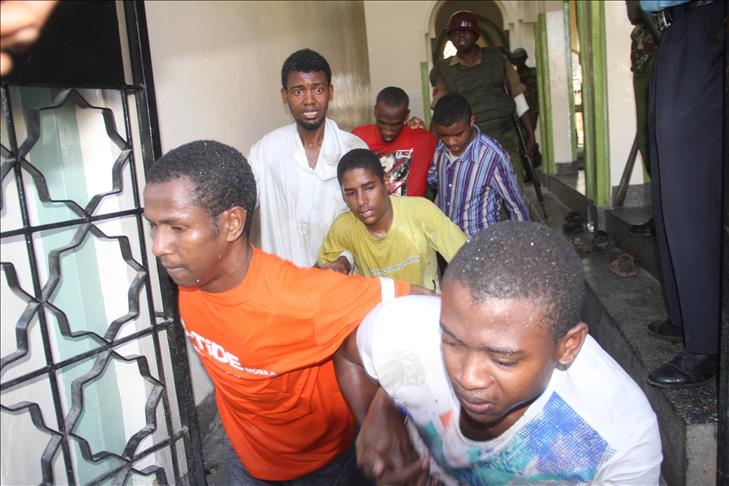Kenya arrests hundreds of refugees in Nairobi
Most of the refugees were arrested in the Eastleigh district in Nairobi, home to a significant population of Somalis

By Yassin Juma
NAIROBI
Kenyan police have arrested more than 1,000 people, mostly Somali refugees, in the capital Nairobi a few hours after the government had ordered all urban-based refugees to be restricted to two designated camps in the north of the country.
"Those arrested were either illegal immigrants with no documents or refugees living in Nairobi," Nairobi Deputy Commissioner of Police Moses Ombati told Anadolu Agency late Wednesday.
"We are following the new directive," he added.
In a statement earlier today, Cabinet Secretary for Interior Joseph Ole Lenku ordered all refugees living in cities and towns across the country to be restricted to the two camps – Dadaab and Kakuma.
He said that 500 extra security personnel had been deployed to Nairobi and the coastal city of Mombasa to oversee the directive.
The UN refugee agency estimates the population of urban refugees to be at 50,000, mostly concentrated in Nairobi and Mombasa.
Lenku had urged Kenyans to report any refugee or illegal immigrant found outside the Dadaab and Kakuma camps to police.
Dadaab in northeastern Kenya is believed to be the world's largest refugee camp, with an estimated population of roughly 500,000 refugees.
Kakuma, also in northern Kenya, is home to more than 125,000 mainly Sudanese refugees, according to the UN's refugee agency (UNHCR).
Kenya shelters close to 800,000 refugees from Somalia, Ethiopia, Sudan, Burundi and the Democratic Republic of Congo.
"The tolerance we have exhibited has not been appreciated," Secretary Lenku said.
"The accommodation we have shown in terms of getting everybody’s view has been taken for granted and abused," he added.
"I want to say that we have been patient enough with those we have taken as guests."
Concerns
Most of the refugees were arrested in the Eastleigh district in Nairobi, which has been home to a significant population of Somalis since the war erupted in their home country in 1991.
The arrested refugees, who included many Ethiopians, are being held at Shauri Moyo and Pangani police stations and are expected to be arraigned in court for flouting the just issued directive.
More arrests are likely to follow in the days to come.
"I am worried about what is going to happen for us next," Abukar Adeey, a taxi operator who has run the business for thirteen years in Eastleigh, told AA.
He believes the new directive is unfairly punishing innocent people.
"Most of us are simple businessmen trying to look for a livelihood," he said.
"I have no links with any terrorists but now I have to pay for the sins of a few," Adeey lamented.
This is not the first time that Kenya has directed all refugees back into the camps.
In 2012, after a series of terrorist attacks in northeastern Kenya and Nairobi, all refugees were ordered to report back to the two designated camps.
The directive was later overturned by a Nairobi court when urban refugees and human rights activists challenged it.
Kenyans of Somali origin have in the past raised concerns that such directives could see many of them mistakenly arrested by authorities.
There are nearly four million Kenyans of Somali background, mostly living in the northeastern part of Kenya.
Kenya has suffered several attacks in recent weeks.
At least six people were killed in an attack on Mombasa's Joy in Jesus Church on Sunday morning.
The attack came only days after Kenyan authorities announced that they had foiled a major terrorist plot following the arrest two men driving a car laden with explosives through the city.
In September 2013, 67 people were killed in a several-day hostage-taking saga at Nairobi's Westgate mall that was later claimed by Somalia's Al-Shabaab militant group.
Kenya currently has troops serving as part of an African peacekeeping mission in Somalia.
englishnews@aa.com.tr
Anadolu Agency website contains only a portion of the news stories offered to subscribers in the AA News Broadcasting System (HAS), and in summarized form. Please contact us for subscription options.

